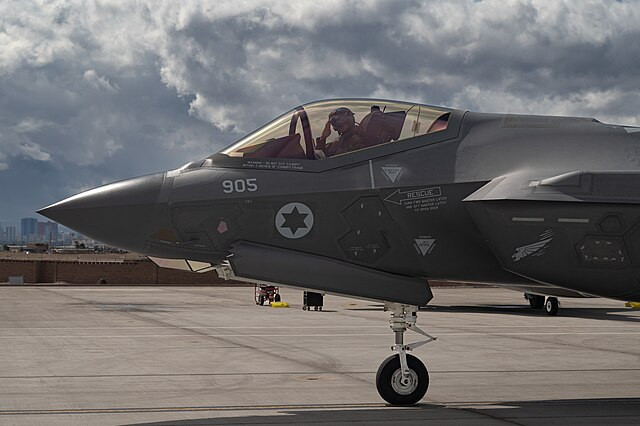Israel intensified its military campaign on Monday with airstrikes on Iran's Evin prison and other regime-linked targets in Tehran, marking one of the heaviest bombardments of the capital in recent memory. The strikes came just a day after U.S. forces bombed underground nuclear facilities in Fordow, Natanz, and Isfahan.
The Mizan news agency, affiliated with Iran's judiciary, confirmed that Evin prison sustained damage. A graphic video shared by Israeli Foreign Minister Gideon Saar on X depicted a fiery blast at a building labeled as Evin's entrance, captioned "Viva la libertad!"-Spanish for "Long live liberty."
Evin, notorious since the 1979 revolution as a site for political detainees and public executions, houses high-profile prisoners, including dual nationals. Israeli Defense Minister Israel Katz emphasized the strategic shift, stating, "The IDF is currently striking, with unprecedented force, regime targets and governmental repression bodies in the heart of Tehran."
Some Iranian media reported additional strikes on a power station in northern Tehran and a university, though university officials denied the latter. Power distributor Tavanir said parts of the capital experienced outages following morning raids.
This escalation follows Tehran's retaliatory missile and drone barrage on Israel earlier Monday. Iranian military spokesman Ebrahim Zolfaqari warned, "Mr Trump, the gambler, you may start this war, but we will be the ones to end it," indicating continued regional stalemate for now.
Despite mounting tensions, oil prices remained subdued, reflecting markets' skepticism that Iran would disrupt the Strait of Hormuz. Brent crude rose modestly to $77.38-only 0.5% higher. Saxo Bank's Ole Hansen noted, "The current geopolitical risk premium-now exceeding $10 per barrel-cannot be sustained for long without a tangible supply disruption."
Key developments:
- U.S. strikes: President Trump's bunker-buster assault on Iran's nuclear sites drew mixed reactions, with satellite imagery confirming extensive damage.
- Israeli focus: Target selection expanded beyond nuclear sites to include prisons, military headquarters, and government centers in Tehran.
- Deterrence remains: Tehran has yet to target U.S. forces or close oil chokepoints, maintaining a calibrated response.
In response to the Tehran strikes, Secretary of State Marco Rubio warned against any moves to close the Strait of Hormuz, ruling it "economic suicide" for Iran. Meanwhile, Iran's parliament debated the possibility of a blockade but awaits approval from its Supreme National Security Council.
Tehran denounced the joint U.S.-Israeli campaign as sovereignty violations. Iranian Gen. Abdolrahim Mousavi accused Washington of giving Iran a "free hand to act against U.S. interests and its army," signaling further escalation.
Global powers, including Russia and EU members, are calling for restraint. Russian President Vladimir Putin described the strikes as "absolutely unprovoked aggression," while EU foreign officials emphasized diplomacy, warning against closure of Hormuz-a vital route for global oil transportation.






